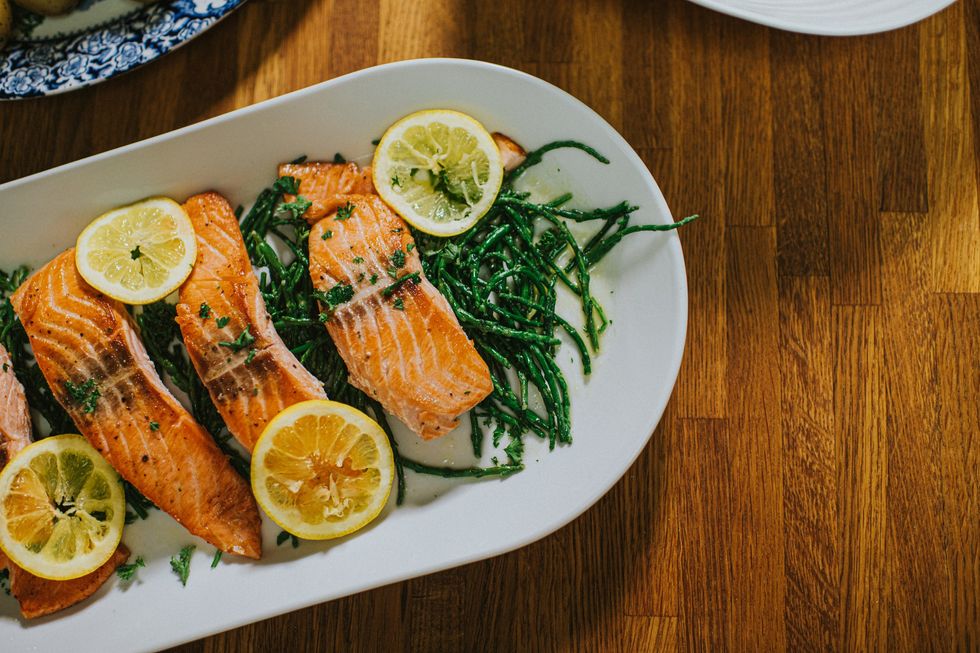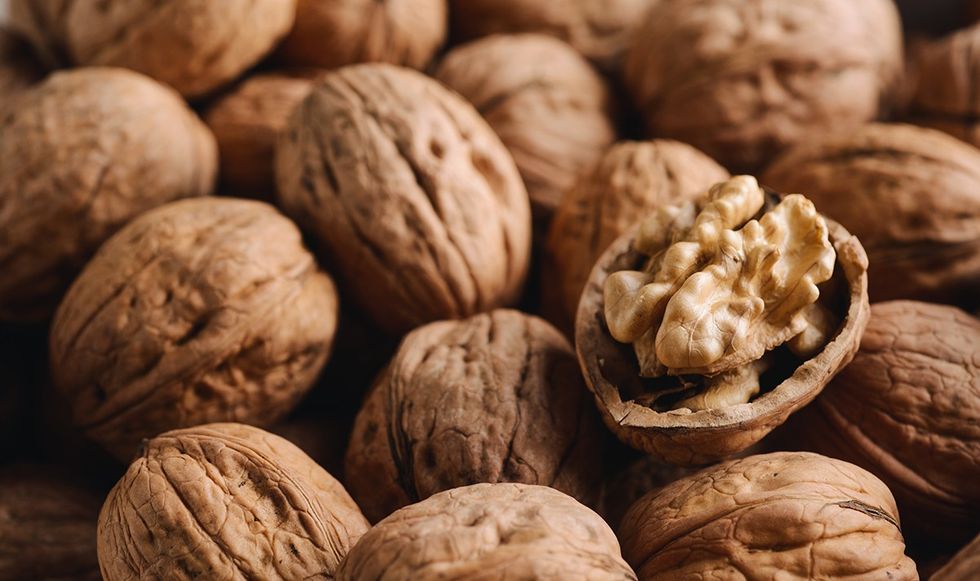'I'm a dermatologist and one type of fat is crucial for glowing, healthy skin - excellent for elasticity and hydration'

According to an expert, it's possible to eat your way to a radiant complexion
Don't Miss
Most Read
A good skin care regime is paramount if you're looking to achieve glowing skin, but no amount of moisturiser, SPF or exfoliators can make up for a poor diet.
GB News spoke exclusively to a dermatologist about the best foods for "beautiful, youthful skin". The expert recommended stocking up on omega-3 fatty acids.
Board-certified dermatologist and owner of Dermatology Circle clinic Dr Viktoryia Kazlosukaya advised: "For glowing, healthy skin, proteins, healthy fats, and antioxidants are essential."
Sharing her top breakfast for a fantastic complexion, the dermatologist said: "Start your day with protein.

'Omega-3 fatty acids are crucial - they help maintain your skin’s elasticity and hydration'
|GETTY IMAGES
"While many choose carb-heavy breakfasts like sandwiches or traditional pancakes, I suggest switching to protein-rich options like eggs or cottage cheese pancakes."
As for lunch, the expert advised creating a plate of lean proteins such as chicken, turkey or fish, paired with plenty of fibre and antioxidant-rich vegetables.
She said: "A good rule is that 25 per cent of the plate should be protein, 25 per cent should be carbohydrates and 50 per cent should be vegetables. Potatoes and whole grains are excellent carbohydrates that give you energy."
Dr Kazlosukaya added: "Don’t disregard healthy fats like avocado or olive oil.
"If you're a vegetarian or vegan, tofu and nuts are good alternatives to animal proteins.
"Omega-3 fatty acids are crucial. Found in fish, nuts, edamame or flaxseeds, they help maintain your skin’s elasticity and hydration."
The National Institutes of Health stated: "Omega-3s are found naturally in some foods and are added to some fortified foods.
"You can get adequate amounts of omega-3s by eating a variety of foods, including the following: fish and other seafood (especially cold-water fatty fish, such as salmon, mackerel, tuna, herring, and sardines); nuts and seeds (such as flaxseed, chia seeds, and walnuts); plant oils (such as flaxseed oil, soybean oil, and canola oil) and fortified foods (such as certain brands of eggs, yoghurt, juices, milk, soy beverages."
LATEST DEVELOPMENTS

Nuts and seeds (such as flaxseed, chia seeds and walnuts) are great sources of omega-3 fatty acids
|GETTY IMAGES
The skin care experts at Aveeno stated: "Omega-3 fatty acids are essential nutrients found in certain foods. They can serve to regulate the skin's oil production, improve balanced hydration, subdue breakouts and minimize signs of ageing.
"Omega-3s can also help soften rough, dry skin and have a soothing effect on irritation and dermatitis."
Referencing a study published in ScienceDaily, the experts continued: "But that's not all! Research shows that regularly taking fish oil may boost the skin's immunity to UV damage and skin cancer."
Finally, Dr Kazlosukaya advised enjoying a dinner of fish and veggies, coupled with fruits, yoghurt and cottage cheese.











